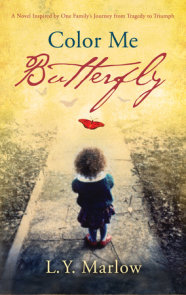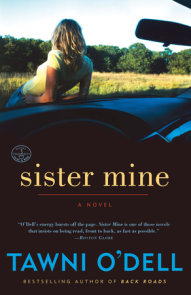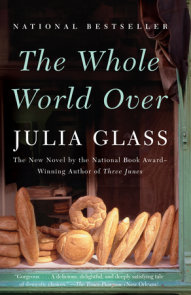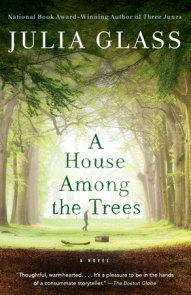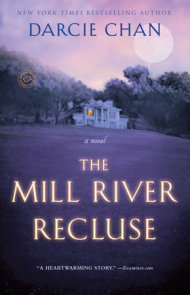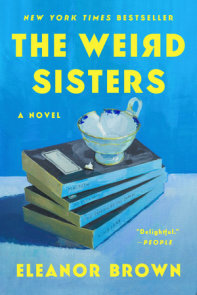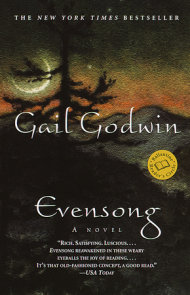READERS GUIDE
The questions, discussion topics, and reading list that follow are intended to enhance your reading group’s discussion of Private Life, a riveting new novel from Pulitzer Prize winner Jane Smiley that traverses the intimate landscape of one woman’s life, from the 1880s to World War II.Introduction
“Masterly. . . . [A] compelling depiction of a singular woman.” —The New YorkerMargaret Mayfield is nearly an old maid at twenty-seven in post–Civil War Missouri when she marries Captain Andrew Jackson Jefferson Early. He’s the most famous man their small town has ever produced: a naval officer and a brilliant astronomer—a genius who, according to the local paper, has changed the universe. Margaret’s mother calls the match “a piece of luck.”
Margaret is a good girl who has been raised to marry, yet Andrew confounds her expectations from the moment their train leaves for his naval base in faraway California. Soon she comes to understand that his devotion to science leaves precious little room for anything, or anyone, else.
When personal tragedies strike and when national crises envelop the country, Margaret stands by her husband. But as World War II approaches, Andrew’s obsessions take a different, darker turn, and Margaret is forced to reconsider the life she has so carefully constructed.
Private Life is a beautiful evocation of a woman’s inner world: of the little girl within the hopeful bride, of the young woman filled with yearning, and of the faithful wife who comes to harbor a dangerous secret. But it is also a heartbreaking portrait of marriage and the mysteries that endure even in lives lived side by side; a wondrously evocative historical panorama; and, above all, a masterly, unforgettable novel from one of our finest storytellers.
Questions and Topics for Discussion
1. How would you describe this novel in one sentence?
2. Smiley’s epigraph for the book is a quote from Rose Wilder Lane. Why do you think she chose this particular line?
3. What is the purpose of the prologue? How did it color your interpretation of what followed?
4. Over the course of this novel—which stretches across six decades of American history—how does the role of women change? How might Margaret’s life—and marriage—have been different were she born later?
5. This is a book that begins and ends with war—starting in a Missouri that is just emerging from the destruction of the Civil War, concluding in California on the eve of World War II. Margaret’s personal life is also punctuated by historical events, the San Francisco Earthquake among them. How does this history affect the lives of the characters? How does Margaret’s story offer the reader a different perspective on the larger life of the nation?
6. On page 80, Smiley writes, “Margaret began to have a fated feeling, as if accumulating experiences were precipitating her toward an already decided future.” Do you think her fated feeling proved accurate? Was marrying Andrew a choice she made, was the decision that of both of their mothers, or was it dictated by the time and place?
7. Lavinia tells Margaret, “A wife only has to do as she’s told for the first year” (page 91). When does Margaret finally take this advice? Why? Do you think this is good advice or manipulative?
8. Compare Lavinia’s advice with the counsel in the letters Margaret finds from Mrs. Early to Andrew. Whose is more useful? More insightful? Do you find Mrs. Early’s behavior toward Margaret and her mother deceitful?
9. What does Dora represent to Margaret? If she could trade places with her, do you think Margaret would? How does Dora think of Margaret? Do Margaret and Dora have anything in common? If not, what do you think brings them together?
10. Margaret and Andrew are both devastated by their son Alexander’s death, yet they react in different ways. How does Andrew’s perspective on this tragedy—that of a scientist and a man who believes in logical explanations—differ from Margaret’s? How does Alexander’s death change their marriage? Might things have been different if he had lived? Why or why not?
11. Thinking about Alexander’s death leads Margaret to think about her brothers and father and the way they died (page 172). Why do you think Private Life opens with descriptions of their deaths? Margaret thinks that their deaths must have been worse for her mother than Alexander’s was for her; do you agree?
12. What is the nature of Dora’s relationship to Pete? What do they get from each other? Pete and Andrew are both liars, yet very different men—but they also seem to get along. What, if anything, do you think they share? And how are they different from each other?
13. Discuss Andrew’s theories of the universe, and his academic dishonesty. Can you think of a modern-day analogue? If he were exposed today, what would happen to him?
14. Andrew Early is a scientist who is described to us at first as a genius. But it turns out to be more complex than that, and for as many of his ideas that are right (the earthquake, the moon craters) others are wrong (ether, double stars). Do you think it’s at all accurate to describe him as a “genius”—or even a “mad genius?” How does “science” augment the overall story the novel is telling?
15. What role does Len Scanlan play in the novel, and in Margaret’s evolving perception of her husband and his work? Why doesn’t Margaret tell Andrew about Len’s indiscretions with Helen Branch?
16. Margaret falls in love with a family of birds—coots—that live in a nearby pond. Why do you think they grow to mean so much to her? What is the significance of the coots to this story of a marriage?
17. Japanese art plays a significant part in the novel. What does it represent to Margaret? How does it tie Margaret to the Kimura family?
18. At several points in the novel, Margaret gets a glimpse of how others see her. But how does she see herself? Is her self-image more or less accurate than Andrew’s?
19. Reread the passage on page 345, about Dora’s reflections on human beings, birds, and freedom. What is Margaret’s reaction? How has Dora changed in the course of the novel? How does this compare to the ways in which Margaret changes?
20. Is Pete the great love of Margaret’s life? What effect does he have on her and the decisions she makes? If Andrew discovered the truth of this relationship, would he feel as wronged by her as she feels by him?
21. Why does Andrew denounce the Kimuras and Pete? Does he have an ulterior motive?
22. Do you think Andrew’s reports are taken seriously—is he responsible for the Kimuras being arrested, or was their fate inevitable given the time and place? Does Andrew’s behavior add a new dimension to your understanding of the World War II internment?
23. On page 372, when Margaret tells Andrew that The Gift is a picture of Len Scanlan, what does she mean?
24. At the end of the novel, Margaret recounts to her knitting group a hanging she witnessed as a young girl and can recall in detail. “I do remember it now that I’ve dared to think about it,” she tells them. “There are so many things that I should have dared before this” (page 403). What do you think she means by this? What do you think of the last line of the book: “And her tone was so bitter that the other ladies fell silent.” What is the significance of the hanging to Margaret’s story, to her life, and to “her” book?
25. What do you take away from the story of Margaret’s entire life? How does this novel compare to accounts in nineteenth- and twentieth-century novels that center around women’s lives?
26. Jane Smiley has revealed that the characters of Margaret and Andrew are very loosely based on “my grandfather’s much older sister [and] her husband, an eccentric family uncle . . . infamous in the physics establishment.” Yet most of the story’s details are fictional. Does knowing this change the way you see Margaret and her story?
(For a complete list of available reading group guides, and to sign up for the Reading Group Center enewsletter, visit www.readinggroupcenter.com)








